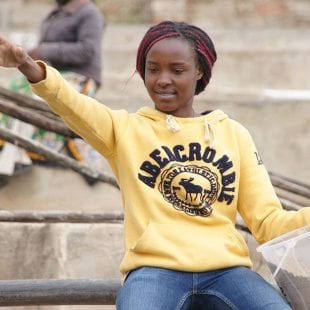Working together is more than the sum of its parts
Cooperation is the key to impact the aquaculture value chain
The Netherlands Enterprise Agency has published an independent story on the impact of FoodTechAfrica. The article is about the movement that a group can initiate and the fruits of their labors.
Please note that the article is available in both English and Dutch.
English: https://english.rvo.nl/news/business-cases/fish-farms-food-security-and-more-jobs
Dutch: https://www.rvo.nl/actueel/praktijkverhalen/met-een-groep-bedrijven-en-universiteiten-kan-je-veel-meer-bereiken-dan-alleen
FoodTechAfrica provides fresh fish for people in Kenya at a fair price. To create more food security and more jobs, FoodTechAfrica started a value chain. The chain includes everything from research, fish production and processing to training courses. Menno Morenc, project manager for Larive International, explains how they approached the project.
Everything for sale, except fish
A few years ago, Larive was looking for opportunities for Dutch companies in East Africa. A Kenyan tea farmer told him you could buy anything at the market except fish. There used to be a lot of fish in Lake Victoria. But, fish had become scarce due to overfishing and pollution. Kenya started importing frozen fish from China to feed the growing population. At Larive, they felt there must be a better way.
How the value chain started
Larive soon learnt it was impossible to buy good-quality fish feed in East Africa. This, and the lack of professional fish farmers, was the cause of the absence of fish farms in Kenya. “That was when we knew we had to take a broader approach,” says Morenc. “It would not be enough to change just one small thing. And so, we started setting up the whole value chain. From fish production to processing and from genetics to training courses.” Genetics is the study of characteristics passed down from parents to their children. People who grow crops and breed animals use genetics.
Financial support for the whole project
“You can do much more with a group than you can on your own,” Morenc says. With that in mind, Larive brought together 13 partners. Together, they are FoodTechAfrica, a partnership of 11 companies, a university and a public party. This group is paying for one half of the project. A subsidy from the Facility for Sustainable Entrepreneurship and Food Security (FDOV) is paying for the other half. Morenc explains, “Without this support, it would have been hard to approach the project as a whole. Instead, we would have had many fragmented projects.”
Healthy fish at a fair price
The central aqua hub organises training courses, workshops and technical help for farmers. Via the hub, farmers can buy fish feed and young fish for breeding. This results in healthy fish for the local population at a fair price. In this way, FoodTechAfrica is creating healthy communities in East Africa. This is especially important as COVID-19 has almost completely stopped the import of frozen fish.
More jobs for young people
FoodTechAfrica wants to improve young people’s future options. The demand for people with practical training is high. That is why FoodTechAfrica is starting an academy to train young people to become technical managers for the entire production process.
Facility for Sustainable Entrepreneurship and Food Security (FDOV)
Through FDOV, the Dutch Ministry of Foreign Affairs supports public-private partnerships in the area of food security and private-sector development in developing countries.
Keen to learn more?
Faciliteit Duuraam Ondernemen en Voedselzekerheid (FDOV)



